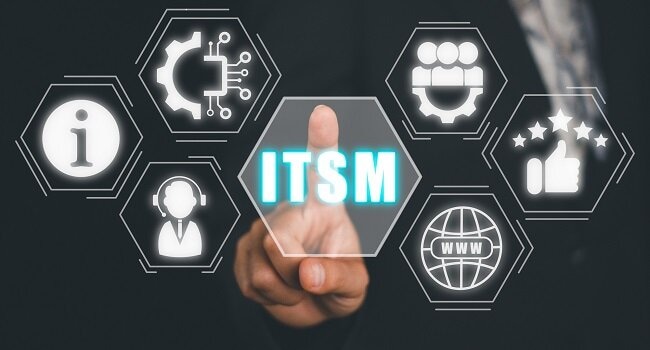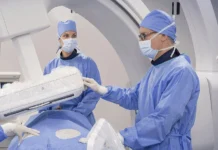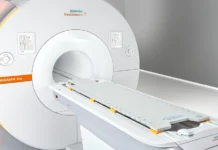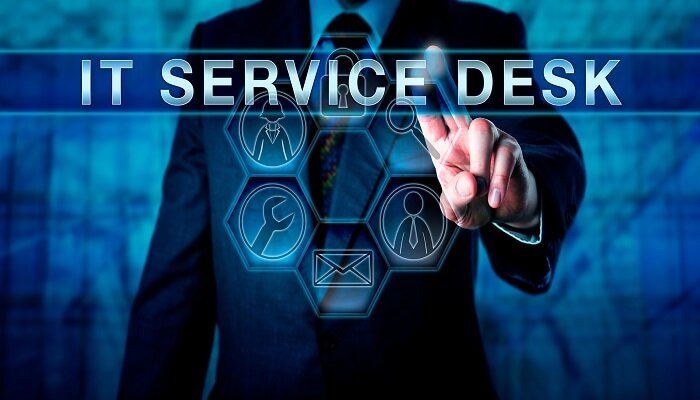Any healthcare facility’s operations rely heavily on an IT service desk. This support system offers IT assistance and troubleshooting services to patients and staff from a centralized location.Â
Healthcare facilities that lack an IT service desk risk can face multiple problems. These include prolonged system downtime, security breaches, and a considerable decline in productivity. Such issues could negatively affect patient care and staff performance, leading to significant financial losses and a dent in the facility’s reputation.Â
With an IT service desk, healthcare facilities can manage these risks and ensure their systems run continually. If you plan to invest in a service desk for your healthcare facility, you may hire Fusioncomputing.ca. This team of professional IT support personnel has vast experience in offering technology solutions to healthcare facilities of different sizes.Â
Read on to delve deeper into why an IT service desk is crucial for your healthcare facility. Â
1. Enhanced Patient CareÂ
Healthcare facilities’ highest quality patient care relies significantly on an IT service desk. Patients expect healthcare providers to have the expertise, be responsive, and work efficiently in managing their health requirements.Â
Technical issues can prevent healthcare professionals from delivering quality and urgent medical care. That’s where the IT service desk comes in, providing valuable technical support and troubleshooting to maintain operations. With IT service desk professionals on hand to resolve issues promptly, clinicians can focus on providing care to patients.Â
In addition, IT service desk specialists can facilitate the adoption of new technology to improve patient care. As an illustration, they can help healthcare professionals establish telemedicine capabilities, enabling patients to acquire medical care from afar and reducing the need to commute to the clinic or hospital.Â
Furthermore, they can assist healthcare facilities in deploying cutting-edge electronic health records (EHR) systems, refining care delivery, and guaranteeing that clinicians can access the most recent patient information seamlessly. Â
2. Data SecurityÂ
IT service desk experts have in-depth knowledge of the most recent security protocols and measures that healthcare facilities must implement to prevent data breaches. They can help healthcare providers establish robust security measures to safeguard patient data against unauthorized access or theft. This includes installing firewalls and anti-malware software and setting additional layers of security to fend off cyber-attacks.Â
Apart from setting up security measures, IT service desk professionals also perform a crucial role in identifying and mitigating potential vulnerabilities. They can conduct regular risk assessments to spot areas of the IT infrastructure that may be vulnerable to attacks. This proactive measure can prevent data breaches, reducing the chances of compromising patient data.Â
If a data breach occurs, IT service desk specialists can also help confine the damage and minimize its impact on patients. They can provide expert guidance on addressing a data breach and implementing measures to prevent similar attacks.Â
3. Streamlined OperationsÂ
An IT service desk can optimize healthcare facility operations by providing expert technical support to staff. This assistance encompasses hardware and software troubleshooting, network connectivity, and the configuration and upkeep of various devices. With a service desk performing these services, healthcare facilities can guarantee that their staff has the requisite resources to provide top-tier patient care.Â
Besides technical assistance, an IT service desk can boost staff efficiency by reducing waiting time. IT service desk professionals can proactively identify and address problems before they escalate, minimizing disruptions and ensuring staff can focus on their duties. Consequently, it can help healthcare facilities save money by reducing the need for costly repairs or replacements.Â
Additionally, an IT service desk can aid healthcare facilities in managing their IT assets, which includes inventory management and equipment tracking. This ensures that all equipment is properly maintained and upgraded, reducing the likelihood of malfunctions and extending the longevity of the equipment.Â
4. Compliance With Regulations
Regulatory compliance is a vital aspect of a healthcare facility’s operations. Healthcare providers must comply with strict regulations and guidelines to safeguard the welfare and privacy of their patients. Neglecting compliance can have dire consequences, including legal actions and fines.Â
IT service desk professionals can help healthcare facilities adhere to pertinent regulations by managing and implementing compliance protocols. These protocols include cybersecurity measures and compliance with healthcare industry regulations, such as the Health Insurance Portability and Accountability Act (HIPAA) in the United States or the General Data Protection Regulation (GDPR) in the European Union. Â
Furthermore, the IT service desk can offer continuous training to staff, keeping them informed of any updates to rules or guidelines.Â

ConclusionÂ
In today’s ever-evolving technological landscape, having an IT service desk is no longer a luxury but a necessity for healthcare facilities. So, if you’re running a healthcare facility and looking to enhance your operations and stay competitive, consider implementing an IT service desk. Â

















